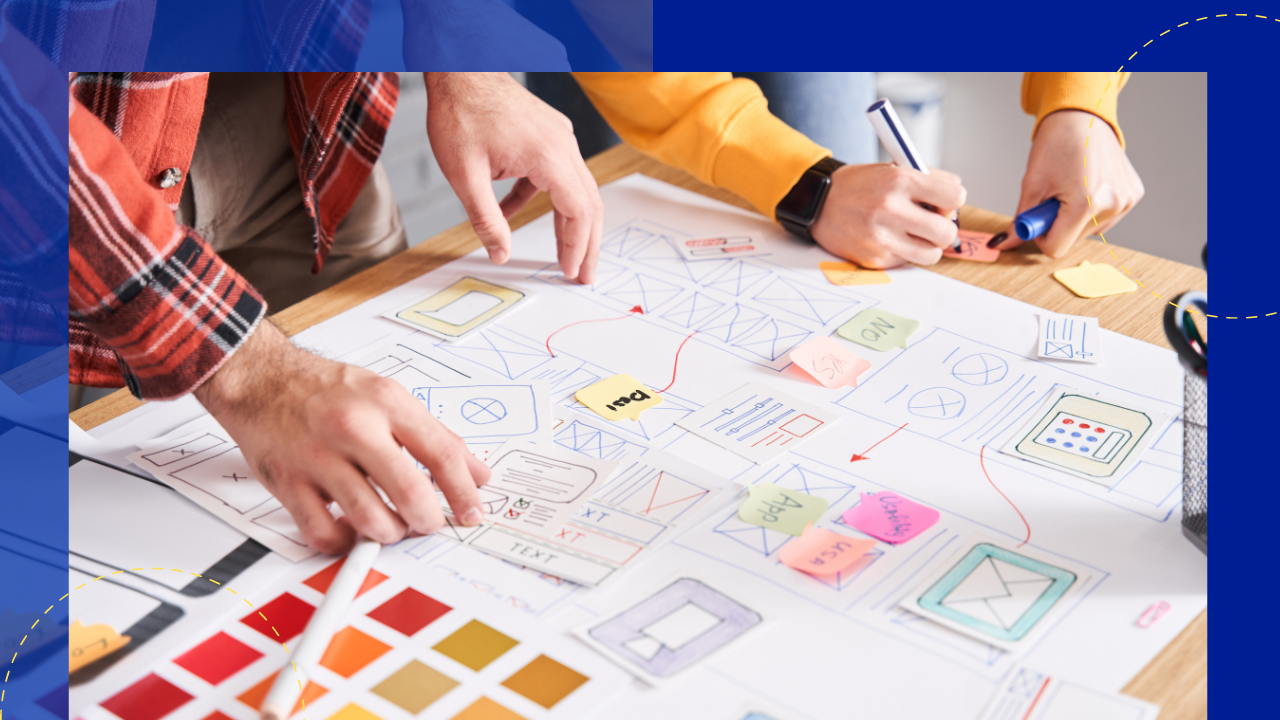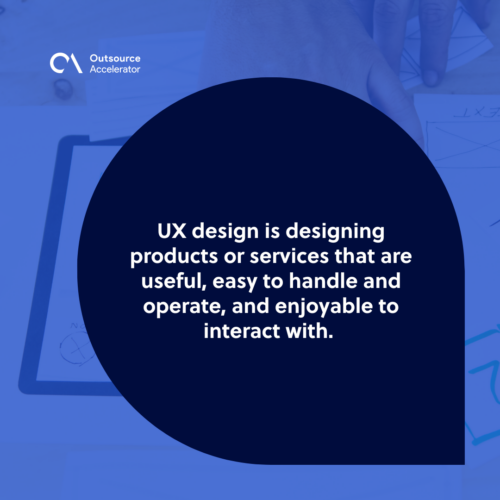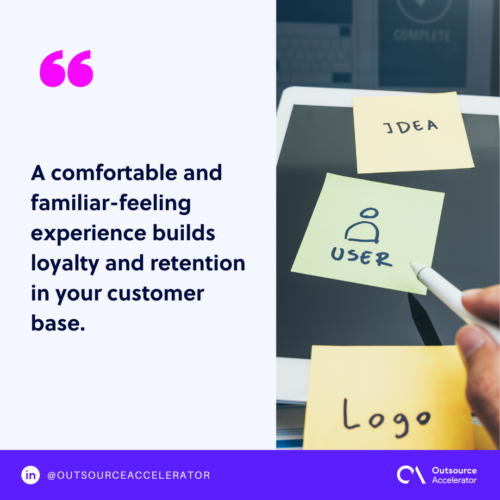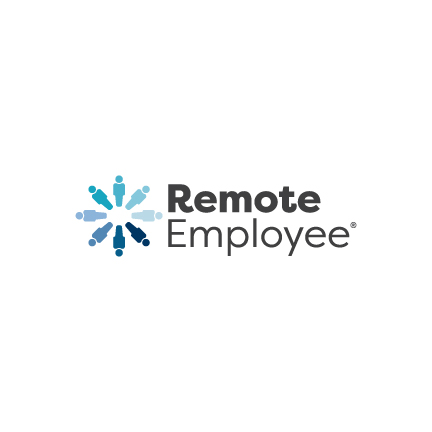Revamp your digital experience with a UX designer

How a product feels is just as important as what it does. Some users will often drop a product if they experience even the slightest of difficulties trying to interact with it.
By then, it won’t matter what interesting features the product has as the experience has already been tainted. Bad product design results in lost revenue and a stain on the company’s reputation.
To address this, companies hire UX designers. UX designers ensure that handling and operating a product feels as natural as possible.
Does the mouse you’re holding feel snug and light in your hand? Or, when using a computer application, is it easy to navigate through and accomplish your tasks? These are the questions asked in UX design.
What is UX design?
UX design is designing products or services that are useful, easy to handle and operate, and enjoyable to interact with. Aspects like the smoothness of a surface or how a button clicks go into UX design.
User experience (UX) focuses on the interaction between real human users and the products. UX design combines psychology, business market research, design, and technology.
UX designers work as part of a product team. Their specific role is to bridge the gaps between the user, the development team, and key business stakeholders while also considering what’s best for the overall user experience.
At times, a UX designer will also be involved with other experiences related to the product, such as the marketing campaign, packaging, and after-sales support. Any pain points in these stages are addressed with the user in mind.

What does a UX designer do?
These are the general functions that a UX designer is expected to perform:
User research
In order for UX designers to design for the user, they have to be aware of what the customer behavior is like.
For some companies, a UX researcher takes the lead in this stage. Tools commonly used in this stage are surveys, one-on-one interviews, focus groups, or A/B testing.
The main objective is to identify pain points and opportunities for the market out there.
User personas
Data gathered from the research will enable a UX designer to start developing user personas.
A user persona is a constructed figure based on patterns and commonalities from user research. Each persona communicates potential demographics, motivations, needs, and responses.
In this stage, the designers look deeper into what tasks a user persona wants to perform with a product and why.
Information architecture
Information architecture describes how content is structured across the product, website, or app. A UX designer works out the most logical layout for users to navigate through.
Effective information architecture lets the users easily find what they’re looking for and move through the content with minimal thought.
User flow and wireframing
User flow and wireframing are tools used to map out a user’s journey through a product.
User flows are flowcharts that visualize the complete path of the user’s journey, from the initial entry point up to the final interaction or “closing” of the product.
Wireframes are two-dimensional sketches that show individual stages of the user’s journey interacting with the product.
At this point, a user interface (UI) designer will step in and begin to add visual or interface elements.
Prototyping
Prototypes are scaled-down versions of the product. Ranging from simple paper models to high-fidelity interactive figures, they enable UX designers to test designs before the actual product is developed.
User testing
Users test prototypes for their accessibility, usability, and intuitiveness. Their feedback helps a UX designer identify any design flaws before creating the actual product.
Finally, UX designers develop solutions to the flaws and implement them into the final product, which is then presented to the client or company.

Why a UX designer is essential
UX designers are crucial when it comes to delivering excellent user experiences. CEOs are increasingly realizing the importance of UX design, making it as another cornerstone of their marketing.
Here are the reasons your company should hire qualified UX designers:
Improved reputation
A good UX design determines whether a good first impression stays good. A talented UX designer creates a platform that encourages comfort.
As per the study conducted by Win The Customer 86% of customers would pay for a better user experience, including in their product design.
Addressing the user’s needs not builds a stronger name for your company but also increases profit. A wide positive reception of your UX design will tell people it is worth using.
This is a big reason customers pick you out amongst the competitors.
Reduced costs
A qualified UX designer will save your business time and money in the long run.
If you continuously need to correct your product for flaws or pain points, you lose out on developing new products and waste money.
The initial stage of product design, in particular, requires a good UX design, as costs only get higher the further you go into development.
Increased loyalty
Users appreciate when their needs are kept in mind and addressed. Well-thought-out design processes result in an experience that mimics a person’s natural behavior.
A comfortable and familiar-feeling experience builds loyalty and retention in your customer base. Long-term thinking is key to a UX designer’s skill set.
Higher conversions and revenue
The easier it is to access a product, the more people will want to use it.
The market is huge, and positive user experiences are how companies stand out. Good UX design enormously affects conversions and revenue.
With an ROI of around $100 for every $1 invested, UX design is a very worthy aspect to finance. It is also a known contributor to high conversions, with as high as 83% conversion lift with a 10% investment in UX design.

Find qualified UX designers through Remote Employee
Outsourcing through Remote Employee helps businesses to reduce operating costs, free up key staff members, and improve customer service.
By hiring from a global talent pool, they can assemble the best team for your business.
Remote Employee’s UX designers understand users deeply through qualitative research. They make strategic design proposals for a quality product by analyzing gathered user data.
The Philippines is a reliable place to hire remote teams like UX designers. Apart from top-tier skills, the country boasts of a highly educated and English-proficient workforce.
Contact Remote Employee to get started.







 Independent
Independent




